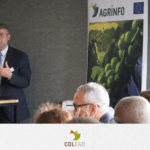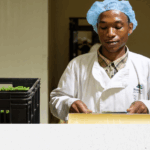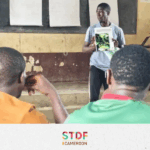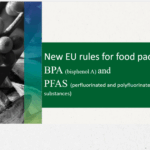- 27/09/2024
- Posted by: Sandra Borma
- Category: News

Optimising your supply system: the example of cassava processor Malakass
Malakass is a company that has set itself the challenge of making cassava a major source of income in the Atsimo Andrefana region of Madagascar, improving thereby the income and standard of living of the local population. How will this be achieved? By processing cassava into high-quality flour and a range of other by-products, which are sold on both local and international markets.
As part of the FFM+ programme, COLEAD recently supported Malakass with a training and coaching mission to strengthen its cassava supply system. The aim of this initiative was to improve the agricultural and commercial practices of producers, while optimising the efficiency of the company’s supply chain.
The first phase of the mission was to train producers. The aim was to equip them with competencies to better manage a sales department within their group, while at the same time ensuring closer coordination with Malakass. As a result of this training, a new cropping calendar was introduced, allowing cassava production to be staggered throughout the year. This has helped to meet not only the needs of Malakass, but also the demands of the market, while reducing the risk of overproduction.
The second phase of the mission involved intensive coaching of Malakass’ technicians. In parallel, a review of crop planning was initiated, highlighting the importance of developing solid contracts with customers to effectively manage volumes and market needs.
Finally, an awareness-raising meeting was organised to mobilise producers around the creation of a cooperative and the cassava supply process. The ambitious goal is to gradually increase supplies to Malakass in order to reach the desired volume per day by 2025.
The results of this mission are encouraging. A positive dynamic has been established between Malakass and the producers; the creation of a cooperative should make it possible to reduce costs while increasing competitiveness. The success of this project will depend on technical monitoring and constant support for the producers, who will have to adapt their practices and optimise the use of local resources.
For Malakass, the mission was a real ‘eye-opener’, prompting the company to review its approach to sourcing and planning plantations and harvests. Malakass is also currently working to raise funds, particularly through initiatives such as the World Bank’s Community Investment Project (CIP). From upstream to downstream in its value chain, Malakass will increasingly contribute to the sustainable prosperity of its region through the processing of cassava.
This activity is supported by the Fit For Market Plus (FFM+) programme, implemented by COLEAD within the Framework of Development Cooperation between the Organisation of African, Caribbean and Pacific States (OACPS) and the European Union. This publication receives financial support from the European Union and the OACPS. The content of this publication is the sole responsibility of COLEAD and can in no way be taken to reflect the views of the European Union or the OACPS.





